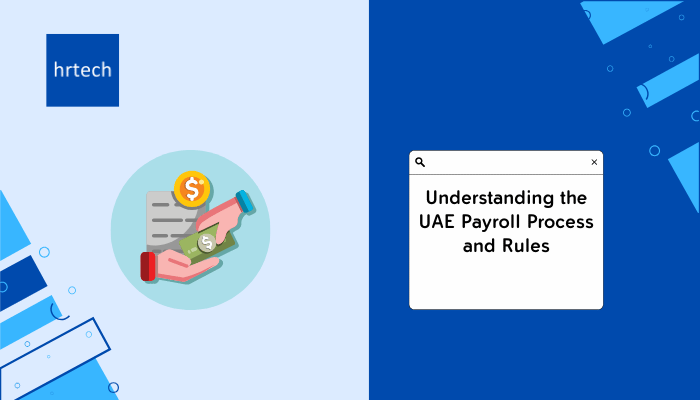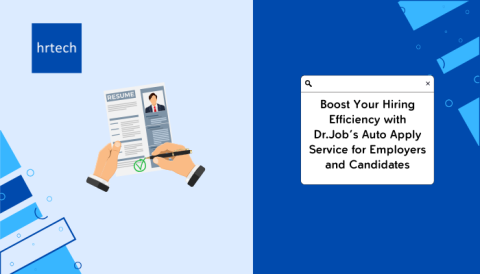Accurate UAE payroll calculations demand time, attention, and expertise, as even a minor error can result in substantial losses. Ensuring that every employee is paid correctly and on time, with all necessary deductions or allowances applied, is crucial.
Equally important is strict adherence to all UAE payroll rules and regulations to prevent compliance issues and ensure smooth operations. Managing payroll in the UAE requires a keen understanding of the country’s unique regulatory environment, structured to ensure timely, accurate, and fair compensation for employees.
In recent years, payroll compliance has become increasingly important, especially since the implementation of the Wage Protection System (WPS) in 2009, which mandates electronic salary payments through authorized financial institutions. This system covers over 4.5 million employees in the UAE, ensuring that wages are paid on time and preventing delays or discrepancies.
Overview of UAE Payroll Regulations
The UAE payroll system is structured to ensure fair employee compensation and compliance with national labor laws. Central to this are clear rules on working hours, leave entitlements, salary calculations, and social insurance contributions.
1. Compliance with UAE Labor Laws: Working Hours, Leave Entitlements, and UAE Payroll Calculations
Under UAE labor law, a typical workweek is capped at 48 hours, or eight hours per day across six days. During Ramadan, working hours are reduced by two hours daily for Muslim employees. Any hours worked beyond this must be compensated as overtime, with premium rates applied for night shifts and public holidays.
UAE payroll calculations for salaries involve the basic salary plus various allowances, such as housing and transportation. It’s crucial to track the basic salary separately, as it serves as the foundation for calculating end-of-service benefits like gratuity, which depend on the employee’s tenure and final basic pay. For businesses seeking streamlined solutions to manage these calculations accurately and maintain compliance, hrtech Marketplaces offers a range of tools and expert support.
2. Role of Federal Law No. 8 of 1980 in Shaping UAE Payroll Processes
Federal Law No. 8 of 1980 provides comprehensive guidelines on employment contracts, compensation, and benefits, which are essential for accurate UAE payroll processing. This law mandates that employment contracts include details on salary, working hours, and leave entitlements, ensuring clarity for both employers and employees. It also defines end-of-service gratuity, rewarding employees based on their years of service and final salary.
One significant requirement under this law is the Wages Protection System (WPS), which mandates that all salaries be paid electronically through authorized institutions, ensuring transparency and timely payments. The WPS allows the Ministry to monitor compliance with wage payments and enforce regulations effectively.
3. Social Insurance Contributions for Employers and Employees
Social insurance contributions are mandatory for UAE national employees and are a critical part of UAE payroll obligations. These deductions support the UAE’s pension and benefits framework, covering pensions, disability benefits, and other long-term security measures. Expatriates, however, are not required to contribute, which simplifies UAE payroll processing for non-national employees. For a deeper understanding of how payroll functions and responsibilities vary across employee types, check out our article on the Differences and Responsibilities of Payroll Function in HR.
By understanding and adhering to UAE payroll regulations businesses ensure legal compliance, foster employee trust, and avoid penalties associated with payroll violations.
Key Components of Payroll Management in UAE
Managing payroll in the UAE involves careful adherence to several essential components to ensure compliance, efficiency, and employee satisfaction. Here’s a closer look at these critical elements, including best practices for effective payroll management.
1. Understanding and Adhering to UAE Labor Laws
The foundation of UAE payroll management is a thorough understanding of UAE labor laws. These regulations cover essential payroll aspects, including working hours, leave entitlements, and salary structure, ensuring fair treatment for all employees.
These labor laws are pivotal to UAE payroll calculations, helping employers ensure compliance and avoid potential penalties. Failure to adhere to these regulations can lead to substantial fines and possible restrictions on business operations.
2. Processing Payments through the Wages Protection System (WPS)
The Wages Protection System (WPS) is a mandatory electronic salary transfer system developed by the UAE government to protect employee wages and ensure timely payments. Ministry of Human Resources and Emiratisation (MOHRE), the WPS requires employers to pay salaries through authorized financial institutions, guaranteeing transparency and adherence to UAE payroll regulations.
- Monthly Reporting: Companies must submit monthly WPS files detailing each employee’s wage, bank details, and payment dates.
- Penalties for Non-Compliance: Businesses that fail to meet WPS standards face penalties, including fines of up to AED 5,000 per unpaid employee, suspension of business activities, and possible legal actions.
Processing payments through WPS is integral to UAE payroll management, as it safeguards employees’ rights and helps companies maintain a compliant and transparent payroll system.
3. Responsibilities in Managing Gratuity and End-of-Service Benefits
One of the distinctive features of UAE payroll Management is the responsibility to manage end-of-service benefits, commonly known as gratuity. UAE law mandates gratuity payments to employees who complete one year or more of continuous service, rewarding their tenure and ensuring fair compensation upon contract termination.
Gratuity calculations are based on:
- Tenure: Employees with one to three years of service receive 21 days’ basic salary for each year, while those with more than five years receive 30 days per year.
- Basic Salary: Only the basic salary is used in gratuity calculations, not allowances or bonuses.
This structure ensures fair compensation and requires careful record-keeping to calculate gratuity accurately. End-of-service benefits are a key component of UAE payroll, supporting employee retention and offering financial security.
4. Navigating the Implications of No Income Tax and Related Taxes
One unique aspect of UAE payroll is the absence of personal income tax, which simplifies payroll calculations for employees. This tax-free policy attracts expatriates and helps companies reduce administrative burdens related to tax deductions.
While there’s no income tax, UAE employers with UAE national employees must contribute to social insurance.
These contributions fund pensions and benefits for UAE nationals, offering them financial security post-employment. For expatriates, the tax-free environment provides an added incentive, making the UAE an attractive destination for skilled talent.
Step-by-Step Payroll Process in UAE
Establishing a smooth and compliant UAE payroll process involves several structured steps, each essential to ensure both legal adherence and operational efficiency. Here’s a breakdown of the key stages in setting up a payroll system in the UAE.
1. Obtaining a Trade License and Registering with the Ministry of Human Resources and Emiratisation (MOHRE)
The first step in setting up payroll in the UAE is obtaining a trade license, which is required to legally operate any business in the country. This license is obtained through the Department of Economic Development (DED) or the relevant free zone authority for companies in free zones.
Once the trade license is secured, the company must register with the Ministry of Human Resources and Emiratisation (MOHRE). MOHRE registration is mandatory for companies hiring employees, as it links the business to the federal labor and UAE payroll system, ensuring compliance with labor laws and payroll regulations.
2. Creating Legally Compliant Employment Contracts
Employment contracts are a cornerstone of the UAE payroll process, defining each employee’s rights and obligations. Contracts must include details such as job title, salary, working hours, leave entitlements, and benefits. MOHRE requires all contracts to comply with Federal Law No. 8 of 1980, which governs employment practices in the UAE.
Creating these contracts with precision is crucial for UAE payroll compliance. Contracts not only protect employee rights but also serve as legal documentation that can prevent disputes or misunderstandings regarding employment terms.
3. Acquiring Necessary Work Permits and Residency Visas
To employ expatriates, companies must secure work permits and residency visas through MOHRE and the General Directorate of Residency and Foreigners Affairs (GDRFA). Work permits and visas are essential for legally employing foreign workers in the UAE, linking them to the UAE payroll system for compliant wage payments.
Key points in this process include:
- Labor Card: Issued by MOHRE, linking employees to the labor and payroll systems.
- Residency Visa: Allows expatriates to legally live and work in the UAE, which is a requirement for payroll registration and the Wages Protection System (WPS).
4. Setting Up a Compliant and Efficient Payroll System
A compliant UAE payroll system involves establishing the necessary infrastructure to accurately track and manage employee information, salaries, and deductions. Many companies use payroll software or partner with payroll service providers to streamline this process. Payroll systems must be capable of handling complex requirements such as leave entitlements, gratuity, and allowances.
Furthermore, employers are required to process payments through the Wages Protection System (WPS), which electronically transfers employee salaries to ensure transparency. Adhering to WPS standards is crucial for avoiding penalties and maintaining a smooth payroll process.
5. Calculating Employee Salaries, Benefits, Overtime, and Deductions
Accurate salary calculations are a critical component of UAE payroll. This involves computing basic salaries, benefits, allowances, and deductions as per UAE labor laws. Overtime pay must also be calculated based on set rates—typically 125% of the regular hourly wage, or 150% for night shifts and public holidays.
Additional points for calculating salaries include:
- Benefits and Allowances: Housing, transportation, and other allowances should be calculated as part of the employee’s overall compensation.
- Deductions: For UAE nationals, contributions to social security and pensions are deducted from salaries. Healthcare deductions and any voluntary deductions must also be handled accurately.
- End-of-Service Gratuity: Calculated based on tenure and basic salary, gratuity is a mandatory benefit for employees with over one year of service.
By following these steps, businesses can set up a compliant and effective UAE payroll process that meets all regulatory requirements while ensuring employees are compensated fairly and accurately. Integrating HR and payroll systems further streamlines this process, enhancing both accuracy and efficiency.
Wage Protection System (WPS) Compliance
Wage Protection System (WPS) compliance is essential for maintaining a legally sound and transparent UAE payroll process. To streamline UAE payroll Management best practices include regular auditing of WPS files, using payroll software to ensure file accuracy, and keeping employee records updated. Adhering to these practices not only avoids penalties but also fosters a transparent, compliant, and positive work environment.
| WPS Compliance Aspect | Description |
| Submission and Preparation of WPS Files | Employers submit WPS files with wage details through MOHRE-approved banks, including wage amounts, deductions, and employee bank information. |
| Penalties for Non-Compliance | Non-compliance can lead to fines (up to AED 5,000 per unpaid employee), business suspension, and legal action by MOHRE. |
| Best Practices for Smooth Processing | Regularly update records, audit WPS files, and use payroll software for accuracy. Maintaining clear records prevents compliance issues. |
| Timely Salary Disbursements | Ensure salaries are paid on time each month to avoid penalties and maintain a positive work environment. |
| Regular Training and Updates | Provide ongoing training for HR teams on WPS requirements and stay updated on any changes in MOHRE policies to ensure continuous compliance. |
Payroll Deductions and Allowances in UAE Payroll
payroll deductions and allowances play a crucial role in ensuring compliance with legal requirements and providing employees with benefits that enhance their overall compensation package. Here’s a detailed breakdown of the primary deductions and allowances in UAE payroll.
1. Overview of Mandatory Deductions, Including Pension Contributions for UAE Nationals
Mandatory deductions are a key component of UAE payroll and primarily apply to UAE national employees, as expatriates are generally exempt from social insurance and pension contributions. For UAE nationals, both employers and employees contribute to the General Pension and Social Security Authority (GPSSA), which supports retirement benefits and social security.
- Employer Contribution: Employers contribute between 12.5% and 15% of the employee’s basic salary.
- Employee Contribution: UAE national employees contribute 5% of their basic salary toward the pension fund.
- Government Contribution: The UAE government also contributes an additional 2.5% in certain emirates, helping to strengthen the social security framework.
These contributions are required by law for UAE nationals and ensure that they are financially protected post-retirement. For employers, ensuring the accurate deduction and contribution of these amounts is essential to maintain UAE payroll compliance and avoid potential penalties.
2. Healthcare Contributions and Other Voluntary Deductions
Healthcare is mandatory for all employees in the UAE, and most employers provide basic health insurance coverage as part of their UAE payroll package. While some companies fully cover health insurance costs, others may deduct a portion from the employee’s salary to help offset the premium costs.
- Healthcare Contributions: These vary based on the level of coverage and insurance provider. In some cases, employees may choose additional or upgraded healthcare options, which can lead to further deductions.
- Voluntary Deductions: Employees may opt for voluntary deductions for additional services or benefits, such as transportation, education, or personal loans. These deductions are typically agreed upon in advance and deducted from the monthly salary.
Ensuring transparency and mutual agreement on these voluntary deductions is essential to avoid misunderstandings and maintain employee satisfaction. Accurate documentation of all healthcare and voluntary deductions is vital for payroll clarity.
3. Types of Allowances, Such as Housing and Transportation
Allowances are an essential part of UAE payroll, especially given the high cost of living in some areas. They are designed to enhance an employee’s overall compensation, supporting their lifestyle and attracting talent to the region.
- Housing Allowance: Many employers provide a housing allowance, especially in industries where expatriate employees make up a large part of the workforce. This allowance helps employees manage rental costs, which are typically high in major cities like Dubai and Abu Dhabi. Housing allowances vary based on the employee’s role, grade, and family status.
- Transportation Allowance: Transportation allowances are common for employees who commute long distances or have travel requirements as part of their job. This allowance supports fuel or public transportation costs, depending on company policy.
- Education and Dependent Allowances: Some companies offer allowances for expatriate employees with families, covering part of their children’s school fees or other dependent costs, adding a significant benefit that helps attract and retain skilled talent.
Allowances like housing, transportation, and education are critical in UAE payroll as they help companies remain competitive and provide employees with benefits that align with their cost of living. Structuring these allowances clearly and accurately within the payroll system not only enhances employee satisfaction but also ensures transparency and compliance.
Managing Employee Benefits and End-of-Service Gratuity
Managing employee benefits and end-of-service gratuity is a key aspect of UAE payroll that ensures fair compensation and supports employee retention. Understanding the requirements for gratuity and other benefits is essential for businesses aiming to stay compliant and foster positive employee relations.
1. Eligibility and Calculation of End-of-Service Gratuity
End-of-service gratuity is a mandatory benefit in the UAE, rewarding employees for their tenure and loyalty to the organization. Employees are eligible for gratuity payments upon completion of at least one year of continuous service. The gratuity calculation depends on the length of service and is typically based on the employee’s basic salary.
- Calculation Method: Employees with one to three years of service receive 21 days’ basic salary per year of service. Those with more than five years are eligible for 30 days’ basic salary for each year.
- Important Considerations: Gratuity is calculated solely on the basic salary, excluding allowances and bonuses, and is prorated based on the employee’s service period if they do not reach a full year.
Accurately calculating end-of-service gratuity is crucial in UAE payroll, as errors or disputes can lead to penalties and legal issues. This benefit demonstrates the company’s commitment to recognizing employees’ contributions and supporting them financially at the end of their service.
2. Providing Mandatory and Region-Specific Employee Benefits
Employers in the UAE are legally required to provide certain benefits to their employees, contributing to a well-rounded UAE payroll package. These benefits include healthcare, annual leave, and public holiday entitlements, which enhance the overall employee experience and are often customized to meet regional requirements.
- Healthcare: Health insurance is mandatory for all employees, with most employers covering this or offering it at a subsidized rate.
- Annual Leave: Employees are entitled to a minimum of 30 calendar days of paid annual leave per year, with sick leave and maternity leave provided as well.
- Other Allowance: Additional allowances, such as housing and transportation, are often provided based on the employee’s grade and role within the company.
Providing these benefits ensures compliance with UAE payroll laws, strengthens employee satisfaction, and helps attract skilled professionals in a competitive market.
3. Understanding the Impact of Leave Entitlements on Payroll
Leave entitlements are an important aspect of UAE payroll that directly impact salary calculations and benefits. Leave types, including annual leave, sick leave, and maternity leave, must be accurately calculated and documented to ensure that payroll remains compliant with UAE labor laws.
- Sick and Maternity Leave: Employees are eligible for up to 90 days of sick leave and 45 days of maternity leave. Payroll must account for full pay, half pay, or unpaid segments as per the law.
- Impact on Gratuity: Leave periods are considered in gratuity calculations, as they contribute to the total service tenure.
Understanding and managing leave entitlements within the UAE payroll framework is essential to maintain compliance, ensure accurate payouts, and avoid employee disputes. This thorough approach to benefits and gratuity helps businesses build a compliant, employee-friendly payroll system.
Common Challenges and Tips for Effective Payroll Management
Managing UAE payroll involves unique challenges, particularly given the strict compliance requirements and diverse workforce in the region. Payroll complexities often arise from navigating regulatory updates, managing a multicultural team, and handling various allowances and deductions. Many companies in the UAE consider outsourcing payroll to specialized service providers to ensure accuracy and compliance, while others prefer to manage payroll internally. Either way, it’s essential to adopt effective strategies to streamline payroll processes and avoid compliance issues.
- Handling Payroll Complexities: Whether using an in-house team or outsourcing, ensure familiarity with UAE labor laws and WPS requirements.
- Maintaining Accurate Records: Regularly audit payroll records and maintain thorough documentation for compliance and auditing purposes.
- Strategies to Overcome Challenges:
- Implement payroll software that aligns with UAE payroll regulations.
- Provide ongoing training for HR teams on regulatory updates.
- Conduct routine checks to avoid errors in salary, allowances, and deductions.
Following these tips helps businesses manage UAE payroll effectively, reducing risks and enhancing compliance.
Conclusion
Effectively managing UAE payroll requires a solid understanding of payroll regulations and a commitment to staying current with any changes. Regulations in the UAE can evolve, and it’s crucial for businesses to stay updated to avoid penalties and maintain smooth payroll operations. Regularly reviewing updates from the Ministry of Human Resources and Emiratisation (MOHRE) and incorporating any new requirements into payroll practices is essential for compliance.
For effective UAE payroll management, adhering to best practices is key. This includes maintaining accurate records, using payroll software to streamline calculations and WPS file preparation, regularly auditing payroll files, and providing clear employment contracts. By adopting these practices, businesses create a transparent and compliant payroll process, fostering trust and satisfaction among employees.
If your organization is looking to simplify and optimize payroll operations, reach out to hrtech for expert assistance. Our team can help you ensure compliance and streamline your payroll process. Contact us today to learn more about how we can support your payroll needs!





